Jesus Was a Feminist
Jesus Was a Feminist
What the Gospels Reveal about
His Revolutionary Perspective
Leonard J. Swidler

Published by Sheed & Ward
An imprint of Rowman & Littlefield Publishers, Inc.
A wholly owned subsidiary of The Rowman & Littlefield Publishing Group, Inc.
4501 Forbes Boulevard, Suite 200
Lanham, MD 20706
Estover Road
Plymouth PL6 7PY
United Kingdom
Distributed by National Book Network
Copyright 2007 by Leonard Swidler
All rights reserved. No part of this publication may be reproduced, stored in a retrieval system, or transmitted in any form or by any means, electronic, mechanical, photocopying, recording, or otherwise, without the prior permission of the publisher.
Library of Congress Cataloging-in-Publication Data
Swidler, Leonard J.
Jesus was a feminist : what the Gospels reveal about his revolutionary perspective / Leonard Swidler.
p. cm.
Includes index.
ISBN-13: 978-1-58051-218-3 (pbk. : alk. paper)
ISBN-10: 1-58051-218-6 (pbk. : alk. paper)
1. FeminismReligious aspectsChristianity. 2. WomenReligious aspectsChristianity. 3. Jesus Christ. 4. Bible. N.T. GospelsCriticism, interpretation, etc. I. Title.
BT704.S95 2007
232.082dc22
2007014224
Printed in the United States of America
 The paper used in this publication meets the minimum requirements of American National Standard for Information SciencesPermanence of Paper for Printed Library Materials, ANSI/NISO Z39.48-1992.
The paper used in this publication meets the minimum requirements of American National Standard for Information SciencesPermanence of Paper for Printed Library Materials, ANSI/NISO Z39.48-1992.
For my wife, Arlene Anderson Swidler,
the First Feminist in my life
Contents
About the Author
A Conclusion Sneak Preview
To save the reader the bother of having to look at the back of the book for the answer, let me say up front in very brief fashion the most dramatic conclusions I come to here in this volume after many decades of research and reflection.
The first one is, as the title of the book indicates, that Jesus was a feministand that presumably his followers should imitate him in that. However, as the following introductory section notes, I published that claim over a third of a century ago. Still, it remains news to many Christians, including the leaders of the Catholic and Orthodox churches.
The second dramatic conclusion that I draw is that Jesuscontrary to a two-thousand-year mistranslation of a key Gospel passagedid not reject divorce and remarriage!
The third is that proto versions of two of the canonical Gospels, namely, Lukes and the Fourth Gospel, were written by women. Actually, I made the argument in 1979 for there being a Luka author of the Proto-Luke Gospel, but the claim was not commented on, to my knowledge. Here I also further claim that the time has come for us to recognize publicly that the penultimate version of the Fourth Gospel was written by a woman, namely, Mary Magdalene. It is also clear that the version of Matthews Gospel that we have also doubtless had a multitude of women sources, and perhaps even organizers, behind it.
The fourth, and most sweeping, conclusion is that we would not have Christianity today if all the materials on Jesus teaching and life that were gathered and handed on by women were missing. One could imagine, per impossibilem, that if all the other materialnot handed on by womenabout Jesus teaching and life were nevertheless gathered together and written down, and the other missionary activities we learn about by Paul, Barnabas, Silas, Timothy, and others (but sans the work of all the women listed by name, and not, in the New Testament), did in fact occur, doubtless some kind of religion around Jesus would have grown up. However, it would have been rather anemic, and doubtless would have faded from all but human memory, like Mithraism and numberless other cults popular for a few centuries.
The proof for these four claims? For that you will have to read the book.
1 The Plan
This book grew out of an article that was published in the January 1971 issue of the Catholic World titled Jesus Was a Feminist. The article in turn grew out of an undergraduate course I offered in the fall of 1970 at Temple University (a state university) called Women and Religion. I had become a conscious feminist after I saw my wife Arlene Anderson Swidlerwho was smarter than 99 percent of men (and I have yet to meet any of the 1 percent), being constantly slighted in the academic world simply because she was a woman. I realized later that I had always been an unconscious feminist because my mother was a strong woman who held her ownand in the worst days of the 1930s had to carry our whole family financiallyin that grim world of the Great Depression (I was born in the auspicious year, 1929. I guess like Louis XIV, Apres moi ldeluge!). The Religion Department of Temple University was in 1970 perhaps the greatest in the world, but it did not have any women faculty. Indeed, there were precious few women scholars trained in theology or religious studies then. In fact, I was probably the first Catholic layperson in modern times to receive a degree in Catholic theology (1959 from the Pontifical Catholic Theology Faculty of the University of Tbingen); now there are thousands, and I helped create many of them.
With the support of Arlene, I set about preparing for the fall 1970 course, but when I came to Christianity, I could not find any books on the attitude of Jesus toward women. There were many books on Pauls attitude toward women, but concerning Jesus I could find only a paragraph or two in a few books. So, I did what any good undergraduate would do: I sat down with the only primary materials that dealt with Jesus, the four Gospels, and carefully went through them, taking notes on every scrap that in any way related to women.
The first difference between the Gospels and the rest of the New Testament I noticed is the attitude toward women. There is not only a large amount of evidence of a positive attitude by Jesus toward women exhibited in the Gospels, there is also a complete lack of any evidence of a negative attitude toward women by Jesus. The same could not, of course, be said of the followers of Jesus in the rest of the New Testament. There are a number of negative statements about women to be found in the New Testament outside of the Gospels. These generally are very familiar to hundreds of millions of people, having been read and preached on in churches for millennia, having had thousands of books written on them, and having been incarnated in church laws, structures, and customs.
The result of looking through the Gospels was astonishingly clear and abundantJesus was a feminist! It was so obvious that I hesitated to even think about submitting my material for possible publication, but I finally did. When it was published, it turned out to be a kind of miniNobel Prize in religion! It was reproduced dozens and dozens of times and was translated and reproduced in many languages in all continents. I still encounter women who tell me how important that article was in their life.
As a historian, I continued to gather material in the field, and in 1976 I published Women in Judaism: The Status of Women in Formative Judaism in the area of women and religion. By then, many highly qualified women were entering the field, and so I decided that I was no longer needed there. Now, almost two decades later, after that volume has gone through some eight printings, I thought that it would, nevertheless, be helpful to pull together all the material that I had gathered in the past forty years on JesusI have published quite a lot on him over the decadesand offer a more full-blown presentation of the evidence that Jesus was indeed a feminist. This fact ought to have consequences for the two billion Christians in the world today, and for the other four billion persons they are likely to encounterthe current world population. Had Arlene not fallen victim to Alzheimers disease starting over a dozen years ago, I am sure that this would be another of our joint publicationsbut she is here within me.



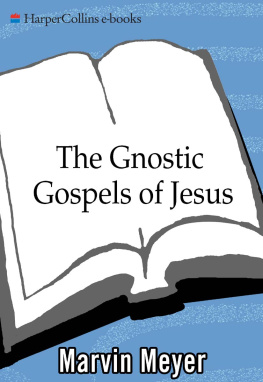

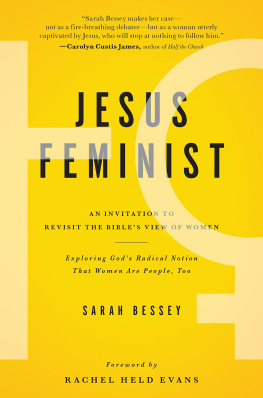
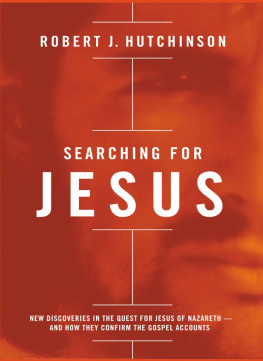
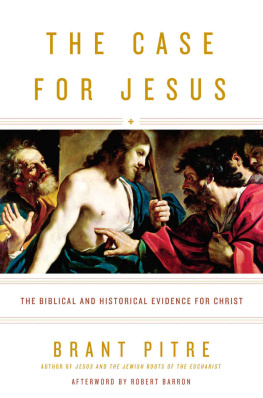
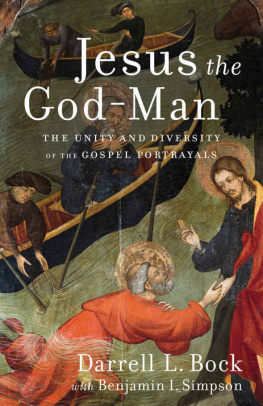
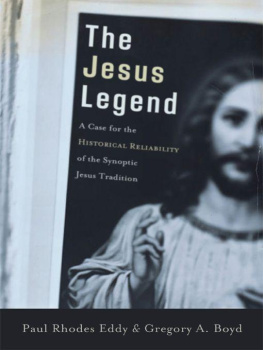

 The paper used in this publication meets the minimum requirements of American National Standard for Information SciencesPermanence of Paper for Printed Library Materials, ANSI/NISO Z39.48-1992.
The paper used in this publication meets the minimum requirements of American National Standard for Information SciencesPermanence of Paper for Printed Library Materials, ANSI/NISO Z39.48-1992.